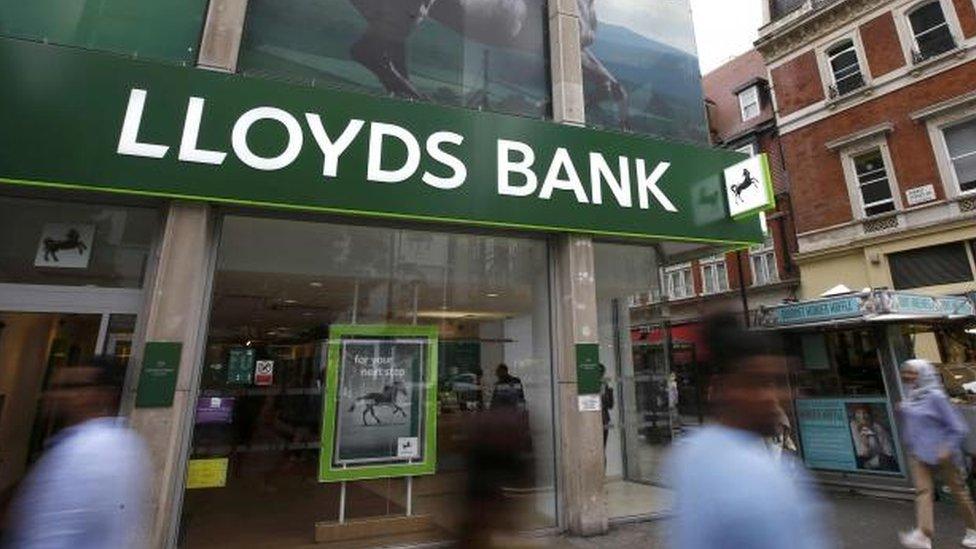Lloyds Bank buys MBNA credit card firm for £1.9bn
- Published
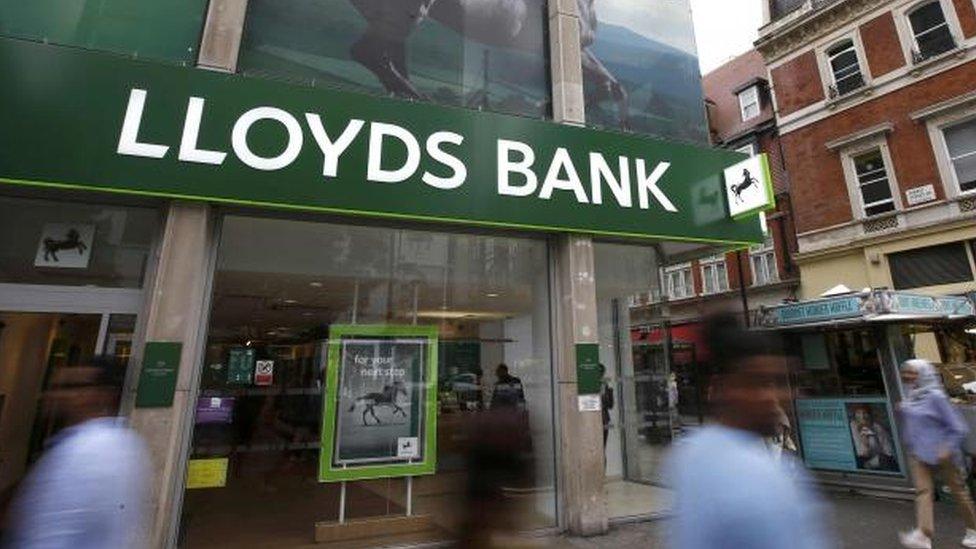
Lloyds is to buy credit card firm MBNA from Bank of America for £1.9bn, in the UK bank's first acquisition since the 2008 financial crisis.
Lloyds, which is nearly 7% state-owned, said MBNA would be a "good fit" with its own credit card business.
MBNA, which holds assets of £7bn, would increase group revenues by £650m a year, Lloyds said., external
The bank's share of the UK credit card market will increase from about 15% to 26% after the transaction.
"The MBNA brand and portfolio are a good fit with our existing card business and we will focus on providing its customers with excellent service and value," said Lloyds chief executive Antonio Horta-Osorio.
The deal is expected to be completed in the first half of 2017.
The price paid by Lloyds assumes £240m to cover claims for mis-selling payment protection insurance (PPI).
Lloyds set aside an extra £1bn in October for PPI mis-selling as it revealed that pre-tax profits had fallen 15% in the third quarter to £811m.
Lloyds said that MBNA would retain its own branding and cardholders would not transfer to a new card.
MBNA, which operates primarily online and through mobile, would continue to have its own rates, separate from Lloyds credit cards, after the deal was done, a Lloyds spokesman said.
Restructuring
There were several other interested parties in the MBNA business, including Santander and private equity firm Cerberus.
Lloyds said the MBNA deal would bring a "significant opportunity for cost synergies", saying it expected to make savings of £100m a year, about 30% of the credit card firm's cost base in 2015.
The banking group has been implementing a restructuring plan, and in October this year confirmed that more than 1,200 jobs would be lost.
The cuts were part of the 9,000 job losses the bank first announced in October 2014.
The MBNA deal is the first acquisition for Lloyds since the banking giant took on collapsed bank HBOS in September 2008 in the midst of the financial crisis.
However, that deal ultimately led to the government stepping in to bail out Lloyds, and it ended up with a 43% stake.
Over the past three years, that stake has been reduced steadily by share sales to institutional investors.
- Published12 December 2016
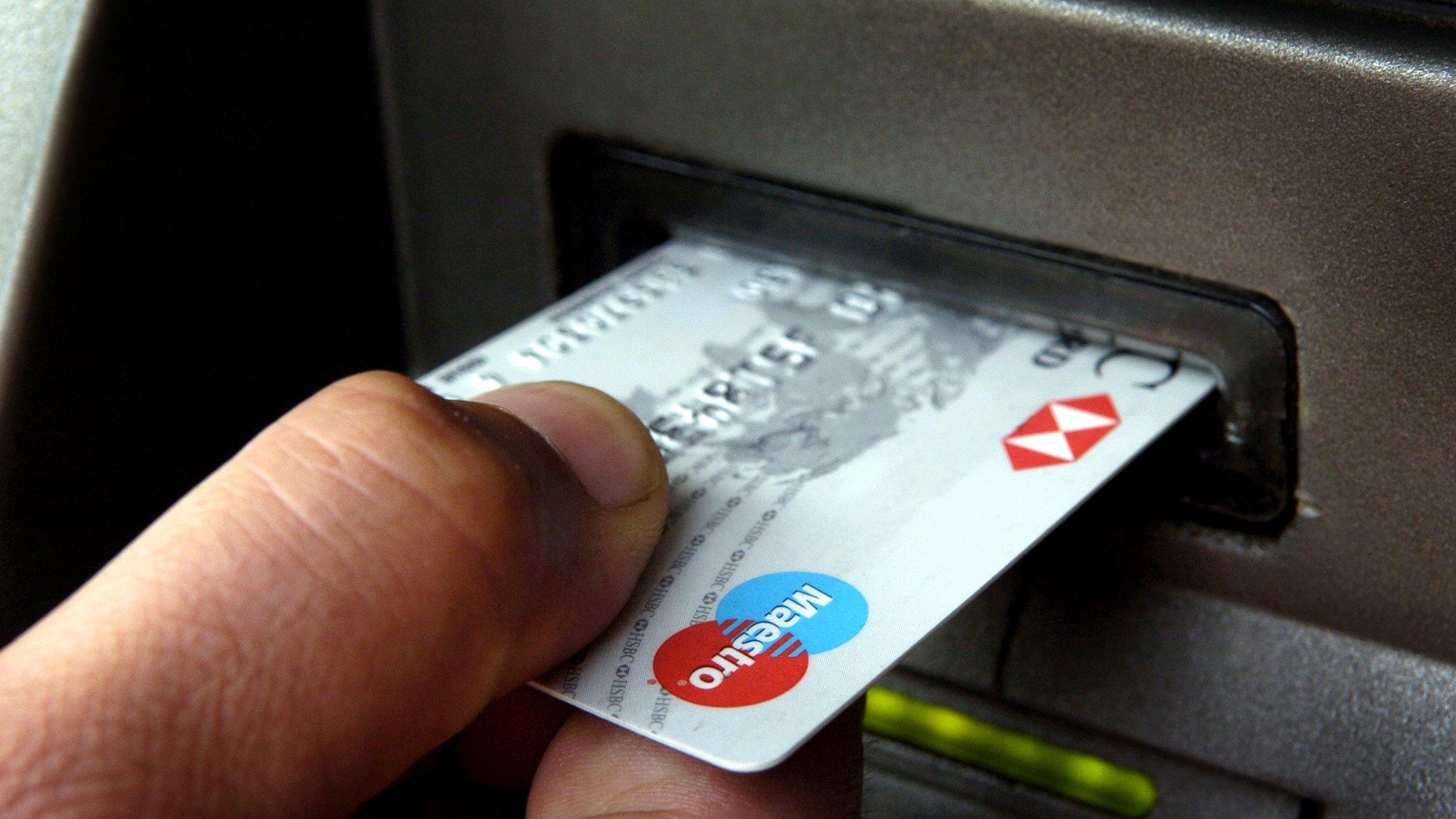
- Published14 December 2016
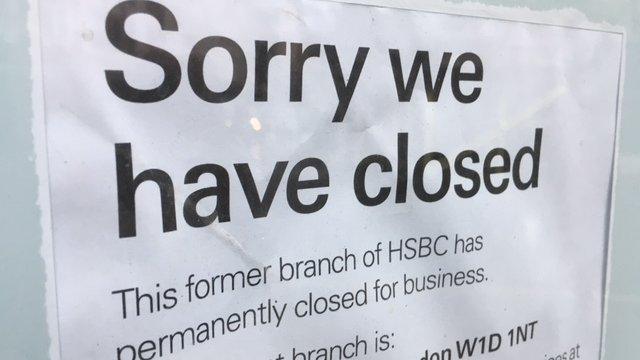
- Published7 October 2016
- Published26 October 2016
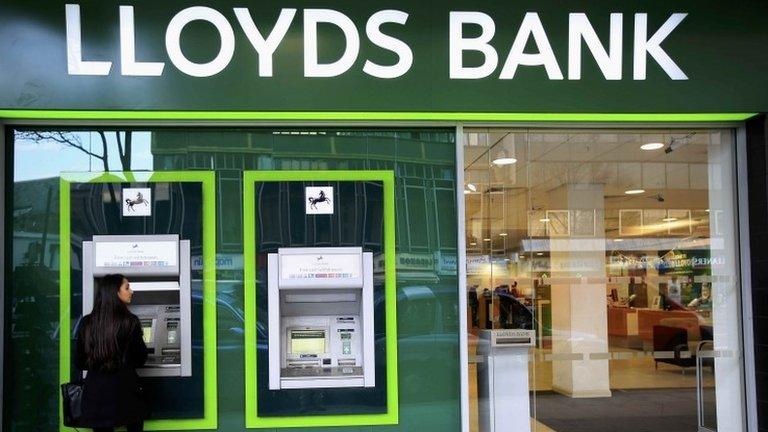
- Published12 October 2016
